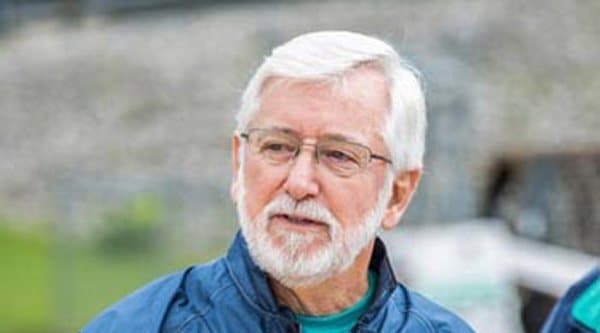Minibytes by Al Allen
Expectations can stimulate positive incentives, encourage and support creative ideas, and lead to fun and excitement. Some expectations, however, can fuel distrust, fear, impatience, confusion, and sadness. Wow! Haven’t we all allowed both types of expectation to impact our lives — such expectation created from within, or from the world around us? The answer has to be a resounding “YES” if you live on earth, and especially if you have attempted to find satisfaction in a career dealing with oil spills; in a relationship living with another individual; or, in “playing” the game of golf.
The management of expectation obviously involves many other careers, activities, relationships and games; however, since I have spent about two-thirds of my life enjoying and being humbled by spills, spouses and golf balls, I can’t help but relate to these three missions. Besides, I have no choice. I suspect that I am addicted to the relentless challenge of better understanding the fate and behavior of oil, my own fate related to behavior in marriage, and the ultimate fate of a tiny ball struck with an oddly shaped club into a field of sand traps, water hazards, and trees!
In my last blog #9 (Part 1) I described some of the problems that arise when expectation is mismanaged involving oil spills, marriage, and golf. A few examples of mismanaged expectations involving spills were presented involving confusion over “planning” standards versus “performance” standards. I described how such confusion can result in unreasonable expectations over the type and amount of resources needed for a successful response. Even the expectations for what a “successful response” is can lead to problems as some people believe that all (or a major portion) of every spill should be recovered. Such expectations stem from a lack of appreciation for the difficulty of removing oil from the environment. They may also arise from a belief that the treatment of oil in place (i.e., in-situ) with chemical dispersants or controlled burning is ineffective and harmful to the environment. I trust that my discussions of dispersants and burning in blogs #5 & #6 help in providing realistic expectations about these response options.
During many oil spill events (especially large marine spills of long duration), strong differences of opinion often arise from preconceived expectations, anger, bias, and/or inaccurate information. Such feelings and expectations should be heard and given serious consideration. Unfortunately, a respectful and timely assessment of those views is often complicated by inaccurate media coverage, uncontrolled public demonstrations, and the need to make quick, operational decisions. Fortunately, the goals and procedures of the National Incident Management System (NIMS) provides effective protocols not only for the effective management of an incident but for the careful assessment of response options and impacts. Opinions, concerns and expectations of the public, specific stakeholders, and the response community are considered within the framework of the Incident Command Systems (ICS) so that a broad range of opinions and expectations can be dealt with fairly.
One of the most difficult types of expectation sometimes surfaces from within the response community itself. It often happens when the concerns of a well-intentioned individual or group is so focused upon a perceived high-priority issue that the resolution of that issue threatens the effectiveness or the timing of the response. Such was the case during the Deepwater Horizon spill in the Gulf of Mexico in 2010. Our in-situ burn (ISB) team was slowed down (and nearly stopped on one occasion) when concerns/requests arose from within the response community including:
- Special precautions by our ISB field teams to ensure that turtles were not being trapped within the fire boom containment area; and that if they were, to remove them and eliminate such impact during subsequent burns.
- Desires to coordinate the ongoing burns with aerial sampling of the smoke plumes with balloons tethered to the boats towing fire boom or separate vessels nearby – the goal being to measure and confirm the nature and amount of pollutants in such plumes.
Considerable time and effort went into the assessment of these requests (and many others!), carefully evaluating ways to comply with each. However, operational goals and safety issues were often in conflict with the potential environmental benefits, involving challenging tradeoffs and difficult decisions. I am proud of the way our ISB team dealt with these kinds of expectations, working to achieve mutually acceptable solutions while keeping the ISB field operations running smoothly and efficiently.
Several examples of expectation and their potential impact on oil spill response have been addressed in this blog and in my previous blog #9. I am sure that you recognize, as have I, the enormity of this topic. We could identify so many other examples of both constructive and potentially destructive expectations. However, I believe that enough has been said already about the reality that expectations cannot be avoided. Let’s turn for a minute to solutions on how to anticipate and deal with negative expectations. Three words, I believe, represent “Key” reminders of how we might think about and hopefully manage such expectations. And…, by the way, these three words will have unique importance and relevance as I show their connection with expectations in “marriage” and “golf”. They are:
- INTEGRITY – not just telling the truth, but searching for truth regardless of its cost and impact on one’s title or position, ego, prior beliefs, and path forward.
- COMPASSION – not just kindness, empathy and support, but the gathering and sharing of information for a mutual understanding leading to shared goals and expectations.
- COURAGE – not just unafraid, but willing to face difficult conflicts and challenges of truth, purpose or belief with respect, an open mind, and a forgiving heart.
I have to admit that this Blog #10 is a bit fat on oil spill issues, and a bit lean on marriage and golf. However, I promise that Part 3 of this Expectation Management series will change all that. I will use the above “Key” words for matters involving spills, spouses and golf balls. I will also tell you about a truly profound message of wisdom related to these key words that I will never forget. The “message” was given to me by my youngest son, at the age of 7 (almost 30 years ago), following our routine bedtime story – it has blessed and enhanced my life, work, and marriage ever since. Golf…, not so much!

Alan A. Allen has over five decades of experience as a technical advisor and field supervisor involving hundreds of oil spills around the world. Al is recognized as a leading consultant and trainer involving oil spill surveillance and spotting techniques, the application of chemical dispersants, and the containment, recovery and/or combustion of spilled oil under arctic and sub-arctic conditions.
Copyright© 2018, Al Allen. Unauthorized use and/or duplication of this material without express and written permission from this blog’s author is prohibited.

